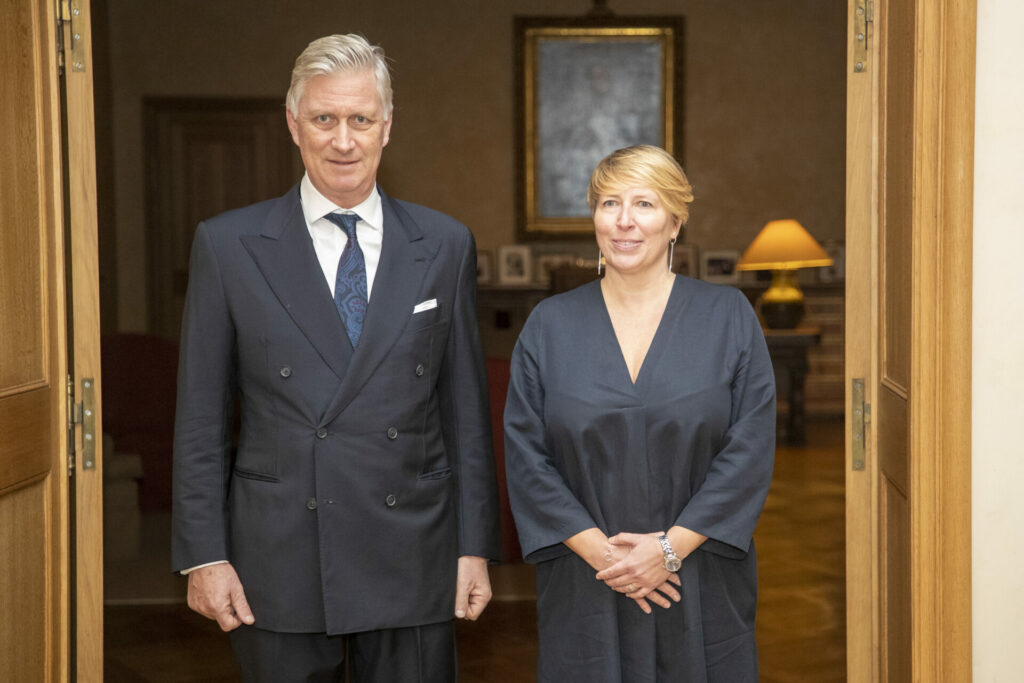Flemish MP Caroline Gennez (Vooruit, Flemish socialists) has replaced Vooruit colleague Meryame Kitir as Federal Minister for Development Cooperation.
Gennez took an oath of office before the King on Saturday for her new ministerial role. In his choice, party leader Conner Rousseau appears to have opted for experience in his choice of Caroline Gennez, rather than backing any promising young talents within the party, as Open VLD recently did with Alexia Bertrand. The 30-year-old Rousseau may have decided that his own relative youth was enough and that the party needed to outwardly demonstrate competence.
The new appointment comes off the back of the revelations that emerged of a toxic work environment in the previous development minister's cabinet, Meryame Kitir.
Deputy Prime Minister Frank Vandenbroucke received a report on the situation Friday evening after which he concluded that it was no longer possible for her cabinet to continue under current allegations. Saturday morning, he, Rousseau and Kitir agreed that she should step down. "I apologise if I unintentionally hurt people," Kitir said. She will return as MP after her sick leave.
Vooruit's new Minister for International Cooperation
Gennez was the leader of Vooruit between 2007-2011 when it was called sp.a. Although she retired from frontline politics, her track record within the party has not been forgotten. With just a year and a half before the general election, the party has been on the lookout for someone who can hit the ground running.
Gennez is already experienced in international development as she was on the board of a civil society organisation, the VVOB, which works on promoting education in developing countries.
Related News
- A quarter of Flemish people would vote for far-right Vlaams Belang in 2024
- Belgian politics for dummies: Who is in power where?
Yet she and Vandenbroucke have not always had an easy professional relationship, as Gennez was responsible for downgrading him to a backbencher role in the Flemish government in 2009. Any differences the two will now need to be put aside in the federal government.
For Rousseau himself, the choice isn't without risk. Since he took over the leadership of the party, he has encouraed reform but has instead decided to put people from the old guard at the centre of politics. It remains to be seen if voters will reward his choice at the next election.

